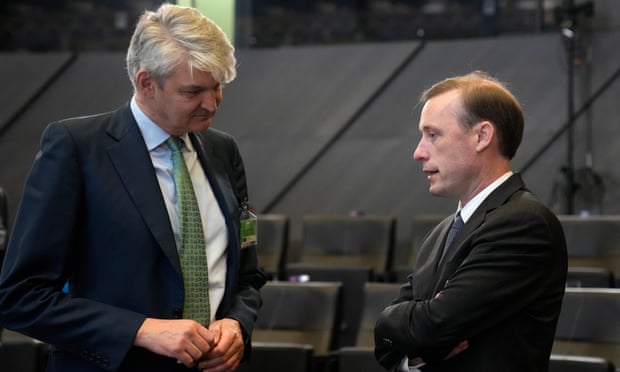
The Guardian view on nuclear warfare
Posted: 29th July 2022
The Guardian view on nuclear warfare: dialogue or destruction
Britain’s national security adviser has thoughtful words about contacts with Russia and China. His bosses need to listen

When the most senior figure in Britain’s defence and security establishment warns of the increased risk of accidental nuclear war, the rest of us should pay attention. Even today, when security chiefs speak more often in public than they once did, they still ration their pronouncements. So when the UK’s national security adviser, Sir Stephen Lovegrove, speaks in Washington about a breakdown in communications with Russia and China causing an enhanced risk of “rapid escalation to strategic conflict”, as he did this week, those words should be taken very seriously indeed.
The increased international danger is starkly obvious. Russia’s deliberate invasion of Ukraine, its use there of hypersonic Kinzhal weapons and its threats of furtherescalation involving its nuclear arsenal add up to the most destabilising repertoire of state-on-state aggression in modern Europe since 1945. In Asia, China’s increasingly bellicose postures over Taiwan and in the South China Sea, its intensive nuclear missile development programmes and its disdain towards arms control agreements raise the stakes much higher. Iran and North Korea, where Kim Jong-un appears to be preparing the country’s first nuclear test for five years, add further to the current volatility
Sir Stephen warned that what is happening is not a return to the nuclear tensions of the cold war. In those days, he argued, Nato and the Soviet Union by and large understood one another’s military doctrines of deterrence, containment and the avoidance of first nuclear weapon use. That is not the case today. Nuclear doctrine is opaque, and possibly different, in Moscow and Beijing, never mind in Pyongyang. The conditions for instability are therefore greater, either through deliberate acts or miscalculations. Although Sir Stephen did not say so, this environment could trigger a flawed and fateful western response, not just an act of aggression by one of the west’s adversaries.
Western faith in dialogue with hostile rivals has been massively damaged by the Russian invasion of Ukraine. A similar confrontation with China over Taiwan would shatter confidence still further. But Sir Stephen is right to say that all sides must continue to look for ways of conducting dialogue. Some foundations are better than none at all. For that reason alone, it is helpful that Joe Biden and Xi Jinping were holding their first conversation in many months on Thursday. The expected start of the nuclear non-proliferation treaty review conference in New York next week is potentially another confidence-building development in a crucial area. In spite of all the obvious difficulties, arms control remains an indispensable means of tackling the current volatility.
The key role in the west will continue to be played by the United States. But Britain is not currently doing its bit. Boris Johnson prefers to grandstand as a fancy dress war leader. Liz Truss is doing a Margaret Thatcher tribute act in the hope of becoming his successor. Rishi Sunak is afraid of saying anything for fear of the Tory right. This week, though, the Commons defence committee accused the government of being “arrogant and unwilling to learn the lessons” of its defence errors, including in Ukraine, while an Institute for Government report describes the Foreign Office as understaffed, with low morale and expertise on Russia continuing to be downgraded. Sir Stephen Lovegrove’s Washington speech may be a welcome piece of strategic thinking at the heart of government. But the people who most need to get his message are the British ministers for whom he works.
Also Sky News coverage of the same speech is here:
https://news.sky.com/story/world-entering-dangerous-new-age-of-threats-says-uks-top-national-securit…